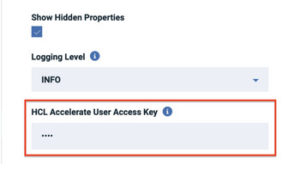Quick Info
Media
Description
GitLab provides management of git repositories. The GitLab plug-in imports issues, commits, merge requests and builds from a GitLab server.Quick Info
ucv-ext-gitlab:2.2.68.tar
Uploaded: 07-Mar-2024 03:40
Pull Command
docker pull hclcr.io/accelerate/ucv-ext-gitlab:2.1.68Release Notes
ucv-ext-gitlab:2.2.66.tar
Uploaded: 13-Mar-2023 15:22
Pull Command
docker pull hclcr.io/accelerate/ucv-ext-gitlab:2.2.66Release Notes
ucv-ext-gitlab:2.1.63.tar
Uploaded: 30-Jan-2023 06:28
Pull Command
docker pull hclcr.io/accelerate/ucv-ext-gitlab:2.1.63Release Notes
ucv-ext-gitlab:2.1.62.tar
Uploaded: 22-Sep-2022 05:16
Pull Command
docker pull hclcr.io/accelerate/ucv-ext-gitlab:2.1.62Release Notes
ucv-ext-gitlab:2.1.58.tar
Uploaded: 13-Sep-2022 10:59
Pull Command
docker pull hclcr.io/accelerate/ucv-ext-gitlab:2.1.58Release Notes
ucv-ext-gitlab:2.1.57.tar
Uploaded: 18-Aug-2022 08:40
Pull Command
docker pull hclcr.io/accelerate/ucv-ext-gitlab:2.1.57Release Notes
ucv-ext-gitlab:2.1.56.tar
Uploaded: 13-Jun-2022 05:31
Pull Command
docker pull hclcr.io/accelerate/ucv-ext-gitlab:2.1.56Release Notes
ucv-ext-gitlab:2.1.55.tar
Uploaded: 06-Jun-2022 02:55
Pull Command
docker pull hclcr.io/accelerate/ucv-ext-gitlab:2.1.55Release Notes
ucv-ext-gitlab:2.0.53.tar
Uploaded: 05-Apr-2022 12:28
Pull Command
docker pull hclcr.io/accelerate/ucv-ext-gitlab:2.0.53Release Notes
ucv-ext-gitlab:2.0.50.tar
Uploaded: 24-Feb-2022 03:15
Pull Command
docker pull hclcr.io/accelerate/ucv-ext-gitlab:2.0.50Release Notes
ucv-ext-gitlab:2.0.37.tar
Uploaded: 03-Dec-2021 06:34
Pull Command
docker pull hclcr.io/accelerate/ucv-ext-gitlab:2.0.37Release Notes
ucv-ext-gitlab:2.0.36.tar
Uploaded: 08-Sep-2021 13:57
Pull Command
docker pull hclcr.io/accelerate/ucv-ext-gitlab:2.0.36Release Notes
ucv-ext-gitlab:2.0.32.tar
Uploaded: 25-Aug-2021 05:08
Pull Command
docker pull hclcr.io/accelerate/ucv-ext-gitlab:2.0.32Release Notes
ucv-ext-gitlab:2.0.31.tar
Uploaded: 11-Aug-2021 06:54
Pull Command
docker pull hclcr.io/accelerate/ucv-ext-gitlab:2.0.31Release Notes
ucv-ext-gitlab:2.0.30.tar
Uploaded: 09-Aug-2021 06:37
Pull Command
docker pull hclcr.io/accelerate/ucv-ext-gitlab:2.0.30Release Notes
ucv-ext-gitlab:2.0.25.tar
Uploaded: 04-May-2021 05:11
Pull Command
docker pull hclcr.io/accelerate/ucv-ext-gitlab:2.0.25Release Notes
ucv-ext-gitlab:2.0.15.tar
Uploaded: 03-Mar-2021 04:44
Pull Command
docker pull hclcr.io/accelerate/ucv-ext-gitlab:2.0.15Release Notes
ucv-ext-gitlab:2.0.9.tar
Uploaded: 08-Feb-2021 07:35
Pull Command
docker pull hclcr.io/accelerate/ucv-ext-gitlab:2.0.9Release Notes
ucv-ext-gitlab:2.0.8.tar
Uploaded: 08-Feb-2021 07:34
Pull Command
docker pull hclcr.io/accelerate/ucv-ext-gitlab:2.0.8Release Notes
Summary
The GitLab plugin provides for integration with a GitLab server. This plugin imports issues, commits, merge requests and builds from a GitLab server and provides a single view of GitLab data in HCL Accelerate value stream map. Data between the GitLab server and the HCL DevOps Velocity server is synchronized every five minutes.
Compatibility
This plugin requires GitLab version 9 or higher.
This plugin supports Cloud and On-Premises platforms.
Upgrade notes
Beginning with HCL DevOps Velocity version 2.4.0 users must enter a user access key is required to connect with the HCL DevOps Velocity server. If you are upgrading from a previous version, you must obtain and add the key to the HCL DevOps Velocity User Access Key configuration property. If the user access key is not added, the integration fails.

History
The following table describes the changes made in each plugin version.
| Version | Description |
|---|---|
| 2.1.57 | Added project Names. Instead of project IDs project names are used while integration. Also implemented wildcard functionality for project names. |
| 2.0.36 | Support for priority using Gitlab labels. |
| 2.0.31 | ReSync support added (support starts with HCL DevOps Velocity version 2.4.4 or later). |
| 2.0.30 | Auto-generated User Access Key support added (support starts with HCL DevOps Velocity version 2.4.0 or later) |
| 2.0.28 | Minor issues |
| 2.0.25 | Minor issues |
| 2.0.15 | Minor issues |
| 2.0.10 | Update plugin to incorporate bug fixes |
| 2.0.9 | Added HTTP proxy support |
| 2.0.8 | Minor issues |
| 2.0.7 | Imports GitLab issues |
Usage
To use the GitLab plugin, the plugin must be loaded and an instance created before you can configure the plugin integration. You define configuration properties in the user interface or in a JSON file.
Integration type
The GitLab plugin supports scheduled events integration which are listed in the following table.
| Name | Description |
|---|---|
| syncGitLabIssue | Queries the GitLab Server for issues in a project. |
| syncGitLabPull | Queries the GitLab Server for merge requests in a project. |
| syncGitLabCommit | Queries the GitLab Server for commits in a project. |
| syncGitLabBuild | Queries the GitLab Server for builds in a project. |
| syncGitLabPipelines | Gitlab Pipeline that will occur on a timer |
| syncGitLabDeployment | A Gitlab deployments that will occur on a timer. |
Integration
There are two methods to integrate the plugin:
- Using the user interface
- Using a JSON file
The tables in the Configuration properties topic describe the properties used to define the integration.
Using the user interface
- From the Plugins page, click Settings > Integrations > Plugins.
- Under the Action column for the plugin, click Add Integration.
- On the Add Integration page enter values for the fields used to configure the integration and define communication.
- Click Save.
Using a JSON file
The JSON file contains the information for creating a value stream. Within the JSON file is a section for integrations. It is in this section that plugin properties can be defined.
- From a value stream page, download the value stream map. The value stream map is a JSON file used to define integrations.
- Edit the JSON file to include the plugin configuration properties.
- Save and upload the JSON file. This replaces the current JSON file with the new content.
- View the new integration on the Integrations page.
Minimum permission to integrate with GitLab
The access token generated from Gitlab server requires the READ_API Permission of private repositories to connect to the Gitlab.

Configuration Properties
The following tables describe the properties used to configure the integration. Each table contains the field name when using the user interface and the property name when using a JSON file.
- The General Configuration Properties table describes configuration properties used by all plugin integrations.
- The GitLab Configuration Properties table describes the configuration properties that define the connection and communications with the GitLab server.
Some properties might not be displayed in the user interface, to see all properties enable the Show Hidden Properties field.
| Name | Description | Required | Property Name |
|---|---|---|---|
| NA | The version of the plugin that you want to use. To view available versions, click the Version History tab. If a value is not specified, the latest version is used. | No | image |
| Integration Name | An assigned name to the value stream. | Yes | name</td |
| Logging Level | The level of Log4j messages to display in the log file. Valid values are: all, debug, info, warn, error, fatal, off, and trace. | No | loggingLevel |
| NA | List of configuration properties used to connect and communicate with the GitLab server. Enclose the properties within braces. | Yes | properties |
| The name of the tenant. | Yes | tenant_id | |
| NA | Unique identifier assigned to the plugin. The value for the GitLab plugin is ucv-ext-gitlab. |
Yes | type |
| HCL DevOps Velocity User Access Key | An auto-generated user access key provides credentials for communicating with the HCL DevOps Velocity server. | Yes | NA |
| Name | Type | Description | Required |
|---|---|---|---|
| URL | String | The URL of the GitLab server. | Yes |
| Private Token | String | The Gitlab server access token. For more information, see the GitLab documentation. | Yes |
| Project IDs | Array | Comma seperated list of GitLab Project IDs to import the source data. | Yes |
| Project Names | Array | You can import the source data by providing a list of GitLab Project Names, which can include regular expressions for pattern matching. For instance, you can use wildcards such as * to match any character sequence, such as sample* to match project names that start with sample. Example: sample, sample1, etc. | No |
| HCL DevOps Velocity User Access Key | String | The user access key used to authenticate with the HCL DevOps Velocity server. This property is not available starting with version 2.0.28 of the plugin. | Yes |
| Branch Name | String | GitLab repositories branch, The branch to pull commits from. | No |
| Additional Branches | Array | Comma seperated names of additional branches to collect commits from besides the main one, leave blank if not needed. | No |
| Priority Field Mapping using Labels | Array | Map GitLab label for Priorty to this server. The priorty field label must be a key vaule pair connected by “:” or “-“. Example: If Gitlab Label for priorty is priortyKey:High, then pass priortyKey in this field. | No |
| Proxy Server | String | The URL of the proxy server including the port number. | No |
| Proxy User Name | String | The user name used to authenticate with the proxy server. | No |
| Proxy Password | String | The password used to authenticate with the proxy server. | No |
JSON code example
The following example can be used as a template to define the integration within the JSON file for a value stream. Copy and paste the template into the JSON file and make the appropriate changes.
"integrations":[
{
"type":"ucv-ext-gitlab",
"tenant_id":"tenantId",
"name":"my-repo",
"disabled":false,
"properties":{
"ucvAccessKey":"key",
"baseUrl":"https://gitlab.com",
"private_token":"token",
"projectIds":[
"8918",
"12345"
],
"proxyServer": "https://localhost:3128",
"proxyUsername": "admin",
"proxyPassword": "1234",
"fieldMapping:[
"priorityKey1",
"priorityKey2"
]
}
}
]


 Configuration Properties
Configuration Properties
